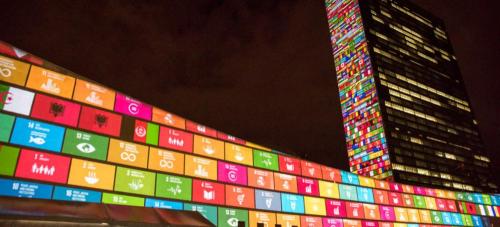
The agreement, known as the Strategic Partnership Framework (SPF), includes four key areas of cooperation.
The two institutions will cooperate in finding financial and other necessary resources to help countries achieve the Sustainable Development Goals (SDGs) and harness data to improve development outcomes.
They will also jointly spur global action on climate change and work hand-in-hand in post-crisis and humanitarian situations.
Adopted by UN Member States in 2015, the landmark Agenda and its 17 Goals are a universal call to action to end poverty, protect the planet and ensure that all people enjoy peace and prosperity.
The SPF, signed by UN Secretary-General António Guterres and World Bank Group President Jim Yong Kim in Washington, will build on past collaborations between the two entities and foster a new partnership.
Specifically, SPF initiatives include:
• Mobilizing increased and better finance from all sources, including through domestic resources, and helping countries attract and manage private capital;
• Improving implementation capacity to achieve the SDGs, particularly at the national and local levels;
• Promoting joint action and investments to improve infrastructure and build human capital, including education and health;
• Convening governments, financial institutions, private investors, and development banks to mobilize, coordinate, and deliver financing to help countries make the transition to a low-carbon, resilient future;
• Strengthening collaboration and joint action in post-crisis and humanitarian settings to build resilience for the most vulnerable people, reduce poverty and inequality, enhance food security, prevent conflict, and sustain peace;
• Improving national statistical systems and enhancing countries’ digital data capacities to improve implementation and maximize positive development impacts, and;
• Expanding and deepening partnerships in policy development and advocacy, joint analysis and assessments, and program design and delivery.










Add new comment